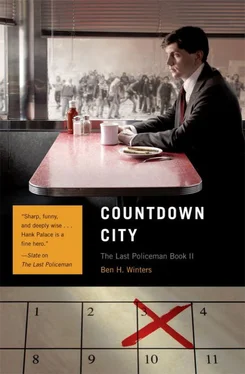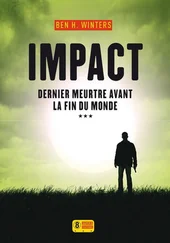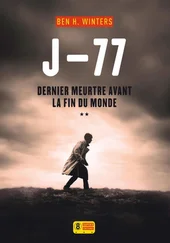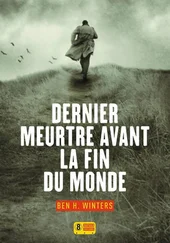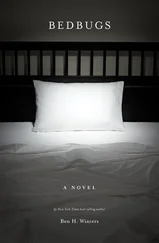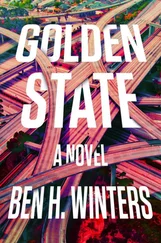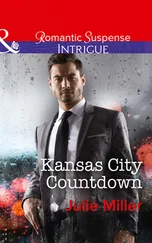I’m not sure what happens now.
* * *
“There’s the Portsmouth naval base, there’s a base at Cape Cod, and there’s what used to be the coast guard station at Portland, Maine. That is all. Three stations and by my count eight or nine cutter ships. There was a nuclear submarine called the Virginia assisting them, but no one seems to have seen it in months. AWOL, maybe, or else they’ve run it south to help in Florida.”
I nod mutely, my stomach a tight ball of astonishment and unease, as Brett tells me his plan. Our plan.
“I have renderings from all of these facilities. We can’t know precisely what the state of readiness is, but we can presume it is lower than we might have found pre-Maia, due to desertions and technical limitations related to resource depletion.”
While he talks Brett runs his fingers delicately over the maps and blueprints he has taped all around the walls of the blockhouse. He’s papered over the historical displays and the park-service timelines, but they peek through, the glowering faces of old soldiers from old wars, staring sternly at the portraitist or daguerrotype man. I think that Brett is wrong about our likelihood of success. I think we may find these naval and coast guard bases, like the Concord police department, better defended than in the past, not worse. I would predict multiple checkpoints, added layers offence-line security, skittish base patrolmen operating under strict shoot-first orders.
It is clear though that Brett’s calculation of these dangers is purely abstract. One does not contemplate failure, or even death, when one believes oneself to be on a crusade. Brett’s intention is to commit murder in the name of a greater good.
Danger? I mean, danger doesn’t even…
“This strikes me,” I say quietly, “as more than a two-person job.”
“Well, it was a one-person job until ten minutes ago,” says Brett. “Our obligation is to do what we can with what we have. That is all we can do, and the results are up to God.”
I nod again.
We are going to break into the naval and coast guard stations—shoot guards if necessary—shoot seamen—set fire to the ships. Whatever means necessary to prevent further missions by those vessels. A one-man crusade to stop the interdiction and internment of catastrophe immigrants along the northern Atlantic coast. A two-man crusade, I correct myself. We are going to the Portsmouth naval base first, and if our efforts are successful there, then we will come back here, to Fort Riley, resupply, and make the longer trip to Portland later in the week.
“I believe, Officer Palace, that you were sent for a reason,” says Brett, turning away from his wall of Scotch-taped plans and barracks blueprints. “To ensure the success of this work.”
There’s a rusting piece of artillery in the center of this room, a cannon with its nose thrust out the centermost window toward the sea. Beside it Brett has a heavy trunk, and now he kneels and pops it open and starts to sift through the supplies inside, jugs of water and rolls of gauze and iodine capsules and plastic grocery bags full of jerky and cheese; as he’s sifting through, something catches my eye, a flash of bright color, out of place. Then he shuts the trunk and hands me my gun, exactly the gun I was expecting: the second of the M140s that Julia Stone boosted for him from her stash at UNH. He presses the gun into my hands. I feel my simple missing-person case crumbling under my feet, melting beneath me.
“When do we go?” I ask.
“Now,” says Brett. “Right now.”
We throw the weapons down from the top of the blockhouse, and they land with two overlapping thuds in the dirt and then we begin to climb down, hand over hand, Brett first again and me behind. And when he’s just touched down and I am two rungs from the bottom I lose my grip on the ladder and tumble down, landing squarely on Brett’s back and knocking him over, and he goes, “Hey,” while I roll off and land on one of the rifles and come up pointing it at his back.
“Don’t move,” I say. “Stop.”
“Oh, no, Henry,” says Brett. “Don’t do this.”
“I am sorry to have been duplicitous, I really am.” I am speaking quickly. “But I can’t allow you to proceed with a plan calculated to result in the death of servicemen and -women.”
He is kneeling in the mud, head slightly down and turned away from me, like a praying monk. “There is a higher law, Henry. A higher law.”
I knew he was going to say that—something like that.
“Murder is murder.”
“No,” he says, “it isn’t.”
“I am sorry, Officer Cavatone,” I say, my eyes watering, readjusting to the summer brightness. “I really am.”
“Don’t be,” he says. “Each man in his own heart takes the measure of his actions.”
The M140 is a bigger weapon than I’m used to handling, and I was unprepared for the weight of it. There are no iron sights on it, just the scope, long and thin like a flashlight bolted to the top of the gun. I’m trembling a little as I hold the thing steady, and I focus on controlling my hands. I will them to be still.
Brett is still on his knees, his back to me, his head slightly tilted upward, toward the sun.
“I understand,” I say, “that you disagree with the interdiction and internment policy being carried out by the Coast Guard.”
“No, Henry. You don’t understand,” he says softly. Mournfully, almost. “There is no such policy.”
“What?”
“I thought you understood, Henry. I thought that’s why God sent you.”
The idea of that, that God or some other force of the universe sent me here, renews my sense of unease and distress. I adjust my hold on the big weapon.
“It’s not interdiction. It’s slaughter. Those cutters open fire on the cargo ships, they sink them when they can. They shoot the survivors, too. They don’t want anyone to land.”
I blink in the sunlight, my rifle trembling in my hands.
“I don’t believe you.”
After a moment Brett speaks again, calm and ardent. “What do you think is easier for the Coast Guard—what remains of the Coast Guard? A massive and resource-intensive interdiction effort, or the simple and efficient operation that I’ve described? They could stand down, of course, stop their sorties entirely, but then the immigrants get through. Then they arrive in our towns, then they are so bold as to want to share resources, share space. Then they want to be given their own chance at survival in the aftermath. And we are determined, God forgive us, we are determined that not be allowed.”
He is crying. His head is bent toward the green of the fort, and his voice comes out choked with lamentation.
“I thought you understood that, Henry, I thought that’s why you came.”
My rifle is trembling now, and I force myself to steady it, trying to figure out what happens next, while Brett gathers his voice, keeps talking. “But perhaps God has given you eyes that cannot see that deeper kind of darkness. And that is a blessing in you. But I beg of you, Henry, to let me be to carry out my mission. I beg that of you today, Henry, because if I can save even one boatload of those people, even one child or one woman or one man, then I will have done God’s work today. We will have done God’s work.”
I think of those dots on the horizon, the tiny ships I saw from the slitted window of the caponier, steaming closer, even now.
“Brett—” I begin, and suddenly he ducks and rolls into the mud and comes up with the other rifle, all in one swift motion, ends up on his knee facing me, the gun angled up toward me, as mine is angled down toward him.
I didn’t fire. I couldn’t. How could I?
Читать дальше
